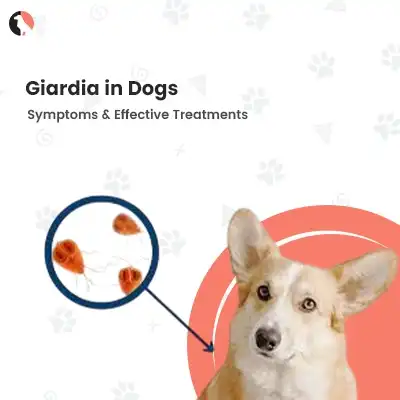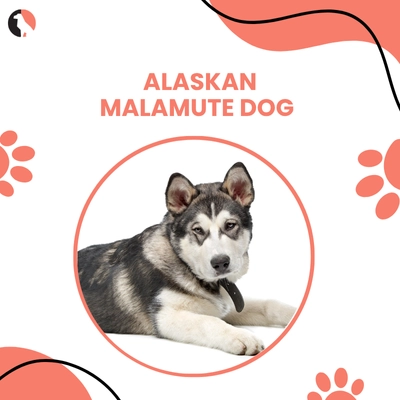It’s late at night. You’re half asleep. Then you hear it. That scratch-scratch-scratch noise. You glance over, and there’s your dog, going to town on their bed again. You may have asked yourself, why do dogs scratch their beds like they’re trying to dig a hole to the center of the earth? Is it boredom? Is it instinct? Is something wrong?
Let’s get real for a second: this behaviour might look weird or even annoying, but it’s incredibly common. If you’ve ever Googled “why do dogs scratch their beds”, you’re far from alone. No doubt, this habit is very random and normal, but there’s actual and proper reasoning behind it, and a bit of biology as well. And sometimes, it’s more than just instinct; it can point to stress, discomfort, or maybe a need for attention.
We have got almost everything here that you need to know about why dogs scratch at their beds, what it means, and how to handle it without losing your mind, as well as your furniture.
Is It Normal for Dogs to Scratch Their Beds?
Yes. Totally. Absolutely. It is as natural to them as their tail-wagging, sniffing things they shouldn’t, or barking at nothing at 2 AM, totally a routine thing.
But still, with a chaotic mind, you might be wondering, “why does my dog scratch his bed like he’s unearthing treasure?” It’s not just to annoy you. It’s part of what they’ve inherited from thousands of years of wild dog ancestors. Scratching and digging helped them create comfy sleeping spots in nature. It kept them warm, hidden, and safe. Even though your pup has a fancy orthopedic bed now, the primal wiring hasn’t changed.
Visit: Can My Pet Be an Emotional Support Animal?
Why Do Dogs Scratch Their Beds: Main Reasons
Let’s break it down. Below are some real, science-backed, behavior-based reasons your dog won’t leave their bed alone.
Instinctual Nesting Behavior
One of the most common answers to why do dogs scratch their beds lies in evolution. Wild dogs used to scratch leaves, dirt, and grass to create a soft, safe, and temperature-controlled nest before resting. That behavior has stuck around.
It’s called “nesting behavior”, and it’s especially obvious in pregnant female dogs or dogs with strong maternal instincts. But even neutered males and puppies show this behavior.
According to Dr. Bonnie Beaver, DVM, in Canine Behavior: Insights and Answers, nesting is part of a dog’s internal programming, influenced by hormones and ancestral memory.
Scent Marking
Dogs have scent glands in their paws. What an interesting fact, right? So every time they dig or scratch at something, they leave behind their unique scent signature; therefore, another quite solid reason.
So, dog digging bed? It might just be your dog marking that space as theirs, a biological way of saying “back off” to anyone or anything else. It’s territorial, yes, but it’s also comforting to them. They feel safe surrounded by their own smell.
Discover: Why Does My Dog Lick Me So Much? Top Reasons Behind This Behavior
Comfort Seeking
Sometimes, it’s not that deep, really. Your dog could just be craving a better spot, scratching and shifting the fluff like you might punch your pillow a few times before bed or flip it over for the cold side. There’s no secret language of discomfort here; it’s just comfort-seeking in its rawest, canine form.
One moment they’re pawing furiously, the next they’re spinning like a confused little tornado, and finally, they collapse in that perfect, self-approved crater they’ve made. It’s instinct dressed up as interior design. And sure, it looks dramatic, but sometimes it’s no deeper than trying to get the bed “just right” like some oddly intense, four-legged Goldilocks.
And if their bed is too thin or doesn’t support their joints, expect even more movement. In that case, the solution may be as simple as upgrading to a better-quality bed.
Explore: How to Stop Dog Barking: Quiet Command Training and Behavior Tips
Anxiety or Stress
Now this is where things get a little tangled; like, scratch-your-head-while-your-dog-scratches-the-bed kind of tangled. We’re not talking casual, pre-nap fluffing. No, this is full-on, paws-go-flying, tail-in-a-blur, repetitive-to-the-point-of-weird scratching. And if there’s whining or anxious pacing thrown into the mix? Yeah, you’re probably looking at stress; big, pent-up, tail-tucked stress.
Dogs, believe it or not, have their own version of doomscrolling. Except instead of TikTok, it’s digging. Loud noises? Absence that lasts too long? A baby that suddenly starts crying in the next room for the third time that day? All of it bubbles up into scratching marathons that would make even the most dedicated miner blink.
There’s a study, Applied Animal Behaviour Science, 2015, Tiira and Lohi, you can look it up, that connects this kind of repetitive behavior (digging, pacing, licking until there’s a bald spot) directly to psychological tension in dogs. It’s behavioral feedback, but silent. Just a dog and his bed. Pawing. Digging. Circling again. Sometimes whining low like they’re narrating their own anxiety.
And yes, it looks like nothing. But it’s loud if you know how to listen.
Temperature Regulation
In the wild, scratching and digging help dogs expose cooler layers of soil on hot days or pile insulating materials on cold ones. Even indoors, dogs may continue this behavior.
Why do dogs dig on beds and couches? Because they’re trying to regulate their body temp, despite your home being climate controlled.
If your dog tends to dig more during the summer or winter, this might be why.
Boredom or Excess Energy
Let’s not pretend dogs are zen monks, they start getting bored when left unattended for too long. If your pup’s energy tank is still full by sundown, and you haven’t given them something better to do, they’ll find their own version of “entertainment”, dog digging in bed being a crowd favorite. It’s part hobby, part protest, part chaos.
High-energy breeds? Like Border Collies, Heelers, or any dog that looks like it should be herding sheep at 6 a.m. and filing taxes by 8, they’re wired to do. When they’re left with nothing but silence, four walls, and a soft bed? The bed becomes the task. The mission. The outlet.
Learn More: How to Train a Reactive Dog: Proven Tips to Calm and Focus Your Pet
Comforting Habit or Routine
Like how someone might tap a pencil during a boring meeting or scroll aimlessly through their phone before bed, dogs have their version of winding down. For many, that means scratching, circling, or digging at their bed in this weirdly focused, oddly soothing trance. It’s not random. It’s their version of “getting in the zone” before sleep.
And puppies? Total copy machines with paws. Why do puppies dig in their beds? Because it feels right, even if they don’t know why. It’s instinct with training wheels. They aren’t overthinking it. They’re doing what dogs before them did, driven by something older than memory. It’s comfort wrapped in motion. Repetition that calms. Not logic, ritual.
When Should You Worry?
Most of the time, why do dogs dig in their beds has a harmless answer. But watch out for a few red flags:
- Scratching that leads to broken nails or injured paws
- Digging paired with signs of distress (whining, pacing, panting)
- Sudden behavior changes in an older dog
- Destroying the bed over and over
If your dog seems uncomfortable or restless at bedtime every night, it might be more than instinct. Time to chat with a vet or a dog behaviorist.
Solutions That Actually Work
Now that you know why dogs scratch at the bed, let’s talk fixes. These aren’t miracle solutions, but they’re real things that help.
Upgrade the Bed
If your dog keeps digging in bed, the bed itself might be the problem. Too soft, too firm, too small? Try orthopedic foam, cooling gel beds, or even raised cots.
Pro tip: Avoid super-plush materials if your dog loves to shred. Go for durability.
Routine and Exercise
Tire your dog out. A mentally and physically stimulated dog is less likely to dig obsessively. Add daily walks, puzzle toys, and playtime. Routine helps reduce stress and predictability makes dogs feel safe.
Introduce Scent-Soothing Items
Give them an old T-shirt of yours to sleep with. Familiar smells can reduce anxiety and scratching. Some dogs find comfort in beds that smell like their humans.
Training and Redirection
If your dog is destroying their bed, it’s time to teach them “leave it” or “settle.” Use positive reinforcement. Distract them with a chew toy or reward calm behavior.
Remember: never punish the digging, it’s usually instinct. Redirect instead.
Check this out: Aussiedoodle Breed Guide: What to Know About This Smart Hybrid
Use Calming Aids If Needed
For anxious dogs, natural calming sprays, pressure wraps (like ThunderShirts), or vet-approved CBD treats can help.
Talk to Your Vet
If nothing seems to work, or the scratching looks compulsive or painful, it’s not a bad idea to check with your vet. Rule out allergies, skin conditions, or neurological issues.
Why Do Dogs Scratch Their Beds, Ultimately…
Your dog isn’t trying to annoy you. They’re not plotting to destroy your clean sheets or perfect couch. They’re just… being dogs.
Why do dogs scratch their beds? It’s instinct, comfort, stress relief, scent-marking, etc., all rolled together into output. It might look like chaos, but to your pup, it’s perfectly logical.
No matter if it is your Chihuahua spinning in circles or your Lab digging into a pile of blankets, try seeing it through their eyes. Give them a better bed. Tire them out. Let them feel safe. And if all else fails, talk to a professional.
Because a happy dog (with a good bed) sleeps better. And so will you.
Quick Recap
- Instinctual nesting explains a lot of this behavior.
- Scent-marking with paw glands helps dogs feel secure.
- Comfort and routine make dogs dig and scratch before sleep.
- Anxiety or boredom may cause excessive scratching.
- Solutions: better beds, exercise, calming aids, and positive training.























































































